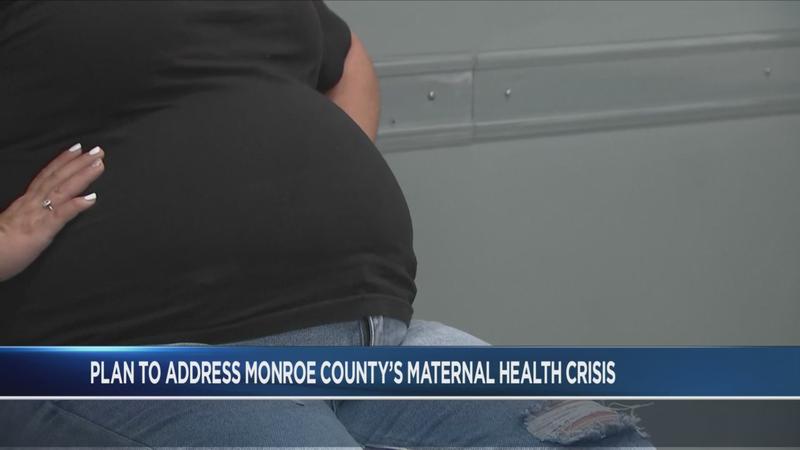Sen. Schumer announces Black Maternal Health ‘Momnibus’ Act
[anvplayer video=”5054976″ station=”998131″]
ROCHESTER, N.Y. (WHEC) — Sen. Maj. Leader Chuck Schumer and Attorney General Letitia James visited Jordan Health Center in Rochester Thursday to address what they called a health crisis that existed long before the COVID pandemic.
They shared some alarming statistics about Black maternal health care in the United States.
"Here’s something that should make every American wish we could do a whole lot better,” Sen. Schumer said. “The U.S. ranks dead last — dead last — in the developed world for maternal mortality."
According to Sen. Schumer, in the Rochester and Finger Lakes region, maternal mortality is 51% higher for black moms than for white moms. He says infant mortality is 300% higher for black babies than for white babies.
On Thursday he announced plans to reduce those percentages and reduce the number of life-threatening pregnancy and delivery complications, especially among black mothers. His plan has two components:
- Passing the Black Maternal Health “Momnibus” Act, which aims to close racial disparities in health care for black moms and to diversify the workforce in perinatal health care.
- Expanding Medicaid coverage to include doulas and midwives for mothers, as well as a year of post-partum coverage.
State lawmakers Sarah Clark, Jen Lunsford, Samra Brouk, and Demond Meeks were at Thursday’s announcement, and Attorney General Tish James spoke about how this new bill could help mothers who are struggling with mental health.

[News10NBC]
"More care for moms dealing with, come on, mental health and substance abuse and other issues,” said James. “Children and babies are beautiful and they’re cute but they’re hard work, right? And there’s nothing wrong with a mom saying I need a break. There’s nothing wrong with a mom saying I’m struggling with this. There’s nothing wrong with a mom saying I’m suffering from depression as a result of this."
If it passes in Congress, this bill would use federal dollars to fund community organizations like Rochester’s Healthy Baby Network. It would also invest in non-health issues like housing and nutrition.